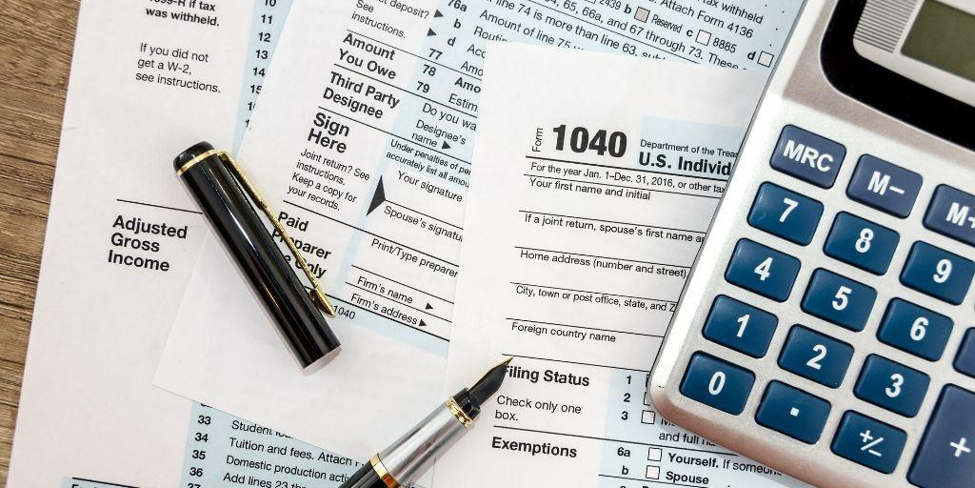6 Key Tips To Prepare For Tax Season

It’s no news that most taxpayers dread the early months of the year due to tax filing and its numerous paperwork.
However, tax season should not be a dreadful period for you because tax filing isn’t as complicated as people make it seem. Tax season and filing your taxes can be exciting if only you have a change of mindset and become more intentional about the whole process. I agree it can be arduous, but this mainly applies to those who did not plan well for it. The popular James Baker’s quote, “Proper Preparation Prevents Poor Performance,” also holds regarding taxes.
Here Are Some Tax Tips:
- Finding the proper paperwork and receipts collected during the year is one of the most frustrating aspects of doing your taxes. You can make your life a lot easier if you spend some time planning.
Here’s a catch; keeping track of your tax information does not have to be a complex process. You can get a folder or a box where you intentionally keep all documents and receipts relating to tax. This makes things very easy for you in the long run. Try your best not to keep anything else in this folder or box. As soon as your tax-related documents start to arrive in January, place them in your tax file or box. Once again, be very intentional about doing this.
- Gather and make handy all the tax documents that are essential for your tax filing. The typical ones are Form W-2 (Statement of Wages), K-1s (income and deductions from partnerships, S corporations, trusts, estates), Form 1099 (Interests, dividends, royalties, etc.), Form 1099-R (Distributions from pensions, annuities, retirement or profit-sharing plans, IRAs, insurance contracts, etc.), Form 1099-B (sales of securities), and Form 1095 (proof of health insurance).
- Business expenses reduce your self-employment tax and income tax, so you don’t want to miss any of them. Keep an eagle eye on business-related parking and tolls and other costs. You may also want to keep a journal or an electronic system to monitor your business mileage.
- Choose what works for you best between standard deductions or itemizing your deductions. The standard deduction is a specific dollar amount that reduces your taxable income. Itemized deductions are eligible expenses that you can claim on federal income tax returns to reduce your taxable income.
The standard deduction is undoubtedly simpler to claim. To itemize, you must keep a record of the amount you spent on deductible expenses throughout the year, including medical expenses and charitable contributions. Additionally, you must keep track of any supporting paperwork you receive: receipts, bank statements, medical bills, letters of acknowledgment from charities, and tax records detailing any mortgage interest, property taxes, and state income taxes you paid in a given year, the standard deduction for your filing status, or if your allowable itemized deductions are greater.

The standard deduction for the 2022 tax year is $12,950 for single filers and married filing separately, $25,900 for joint filers and $19,400 for heads of household.
However, if you feel itemizing your deductions is the best option for you, then ensure everything you need to prove your claim is ready and handy, e.g., receipts for deductions and tax credits such as education costs, childcare, and medical expenses, etc.
- Pick a suitable filing status. Depending on your status and preference, you can either file as a single, married filing jointly or separately. You can also file as a head of household if you paid more than half of the household expenses for the year, or unmarried, or have a qualifying child as a dependent. The last status option available is a qualifying widow(er); you get the license to this status after two years of losing a spouse if you do not remarry.
- Seek the help of a Tax Experts. Although many Americans opt for online tax filing, the easiest option is to have someone else (advisably, a professional) handle the arithmetic and paperwork. Do-It-Yourself (DIY) is often seen as fantastic and cheap. It may not be all that cool and cheap when it comes to taxes. This is because no matter how knowledgeable you are, you cannot compare your experience to that of a Tax Expert who knows the in and out of income tax, gift tax, inheritance tax, estate tax, and payroll tax.
For instance, an Enrolled Agent (a federally authorized tax professional) has the right to represent you and/or your business before the IRS on any tax issue. A Certified Public Accountant (CPA) can also help with your taxes, but unlike the Enrolled Agents, a CPA is an accounting expert, and one of their many specialties is taxation.
In summary, planning your tax filing early will save you many agitations. Always remind yourself that no matter how you run from it, you will still end up doing it. So, it would be best if you started early enough to avoid losing your peace. Also, do not let the excitement of delivering your return to the IRS make you set all receipts and tax forms ablaze. Keep these papers safe; they can save your skin in the near future.




